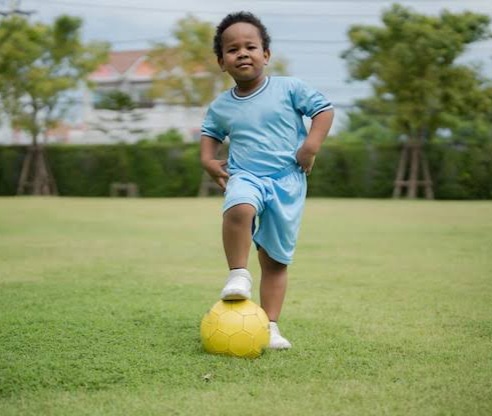The Importance of Sports in Children Education

The Importance of Sports in Children Education
Sports play a vital role in childhood education, offering a wide range of benefits that extend far beyond the playing field. Participating in sports activities from a young age can have a profound impact on a child’s physical, emotional, and social development, shaping them into well-rounded individuals equipped with essential life skills.
Physical Benefits
Engaging in sports activities helps children develop strong bones and muscles, improve cardiovascular health, and enhance flexibility and coordination. Regular physical activity can also reduce the risk of obesity, diabetes, and other health problems that can arise from a sedentary lifestyle. Moreover, sports participation can help children develop healthy habits and a lifelong appreciation for physical activity.
Life Skills Development
Sports provide a unique platform for children to develop essential life skills, such as teamwork, communication, and problem-solving. Working together with teammates towards a common goal teaches children the value of collaboration, mutual respect, and trust. Sports also help children develop discipline, resilience, and perseverance, as they learn to overcome obstacles, bounce back from setbacks, and push themselves to achieve their goals.
Social Benefits
Participating in sports can help children develop social skills, such as cooperation, communication, and conflict resolution. Team sports, in particular, provide opportunities for children to interact with peers, build relationships, and learn to work towards a common objective. Sports can also help children develop a sense of belonging and connection to their community, fostering social bonds and a sense of identity.
Cognitive Benefits
Research has shown that physical activity can have a positive impact on cognitive function, improving concentration, memory, and academic performance. Exercise has been shown to increase blood flow to the brain, boosting cognitive function and enhancing creativity. Moreover, sports participation can help children develop critical thinking skills, as they learn to analyze situations, make quick decisions, and adapt to changing circumstances.
Emotional Benefits
Sports can have a profound impact on a child’s emotional well-being, helping to build confidence, self-esteem, and self-worth. Participating in sports can provide children with a sense of accomplishment and pride, as they achieve their goals and develop a sense of mastery over their skills. Sports can also help children develop emotional regulation skills, learning to manage stress, anxiety, and other emotions in a healthy and constructive way.
In conclusion, sports play a vital role in childhood education, offering a wide range of benefits that can impact various aspects of a child’s life. By incorporating sports into childhood education, we can help children develop essential life skills, improve their physical and mental health, and foster social connections and emotional well-being. As we prioritize sports in childhood education, we can empower the next generation with the tools they need to thrive, both on and off the field.






